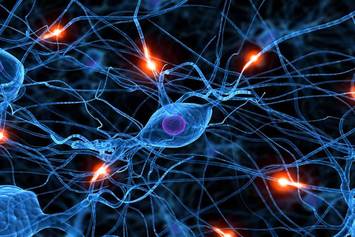 So, “How are you feeling? Are you in a good mood, positive, focused and have a lot of energy? Or are you depressed, moody, stressed and cant sleep at night? Do you engage is social activities, are you affectionate and outgoing? Or are you lonely, withdrawn and do people tend to annoy you? Are you in control of your food cravings and your weight? Or do you crave carbs, sugar or salt and are you putting on more and more belly fat? So how do you really feel? It is a direct correlation of the balance in your body. Your habits and lifestyle choices are both a cause and effect of this chemical and hormonal balance. Neurotransmitters and hormones are involved in almost every function of the body, and both are critically important for our mental health and well being. If ether one of the systems gets out of balance your health will spiral down leaving you tired, depressed, and overweight! Lets take a look at these two systems, how they work and how they effect your thoughts and feelings. Our endocrine system (hormones) is essentially the command center in our brain; the hypothalamus and pituitary glands send signals to distant parts of the body to control everything from stress response through our adrenal glands, to blood sugar balance through our pancreas, to thyroid hormone through our thyroid gland, to sexual behavior and function through our reproductive organs. Hormones also control growth, sleep, mood and much more. The nervous system (neurotransmitters) send messages throughout the body to every cell, organ and tissue helping you do everything from movement to feeling happy, angry or sad. Neurotransmitters are responsible for providing energy, motivation, focus as well as calming the mind and body, slowing down the system, and inducing sleep. Lets take a look at a few: Serotonin Dopamine Oxytocin Testosterone Estrogen Serotonin is formed from a biochemical conversion process that combines tryptophan, which is an amino acid from protein; with tryptophan hydroxylase, a chemical reactor, together form 5-hydroxyltryptamine (5-HT). Serotonin is most well know for its role in the brain where it plays a major part in mood, anxiety, and happiness. Dopamine is a neurotransmitter that helps control the brains reward and pleasure centers. Dopamine also helps regulate movement and emotional responses, and it enables us not only to see rewards, but also to take action to move toward them. Tyrosine, another amino acid becomes dopa via the enzyme tyrosine hydroxylase, and dopa becomes dopamine via the actions of dopa decarboxylase. (One more chemical reaction can turn dopamine into the neurotransmitter, norepinephrine. Dopamine is one of the key regulators of decisions, or impaired decision making as seen in people with dopamine related disorders such as addiction, schizophrenia and Parkinson’s disease. Oxytocin is a hormone that is made in the hypothalamus located in the brain. It is transported to, and secreted by, the pituitary gland which is located at the base of the brain. It is classed as a nonpaeptide (a peptide containing nine amino acids), while its biological classification is as a neuropeptide. It acts both as a hormone and as a brain neurotransmitter. Oxytocin when released into defined regions of the brain affects emotional, cognitive, and social behaviors. It contributes to relaxation, trust, human connections, and Psychological stability Testosterone is the primary male sex hormone and an anabolic steroid. Testosterone plays a key role in male development of reproductive tissues such as the testis and prostate along with promoting secondary characteristics such as increased muscle and bone mass. In addition, testosterone is essential for health and well-being, and psychological behavior. Testosterone levels play a major role in risk-taking personality traits and many studies support a link between adult aggressive and antisocial behavior although the relationship is modest if examined separately for each sex. Estrogen is the primary female sex hormone. It is responsible for the development and regulation of the female reproductive system and secondary sex characteristics. Studies show that the overall level of an individual’s impulsivity is affected by estrogen. Those with lower estrogen levels in the first show higher measures of trait impulsivity. So put this into context; a question recently posed to me is what inspired me to write this. The question was, “I wonder why some people just naturally have a propensity for addictive behaviors or think nothing about joining the military…how can someone not fear having to fight?" Personality traits can be measured and altered based on the chemical and hormonal makeups. So many things can either enhance or hinder this balance. Our philosophy is…”when you address and balance three main fundamental foundations for life, you can truly provide perfect harmony and optimal wellness."
0 Comments
Leave a Reply. |
AuthorMark T. Cuatt Archives
March 2020
Categories |
 RSS Feed
RSS Feed